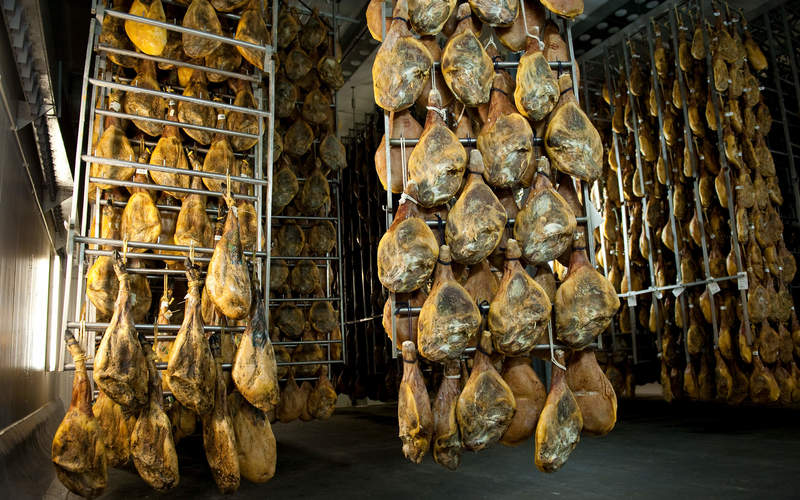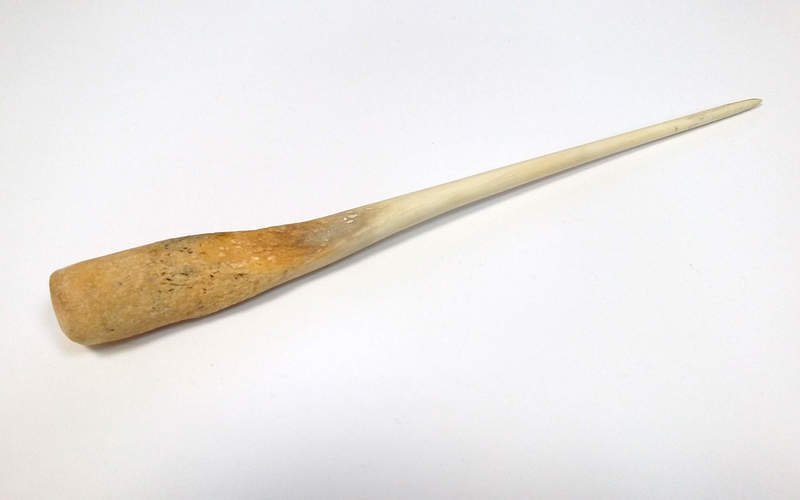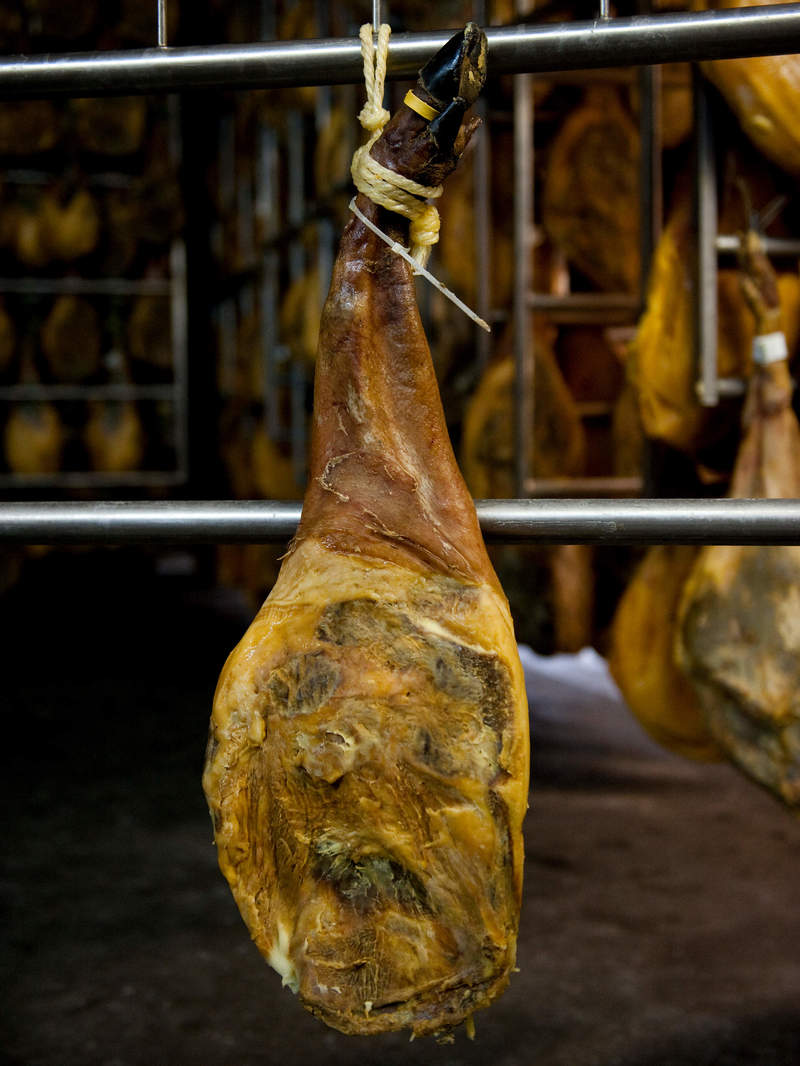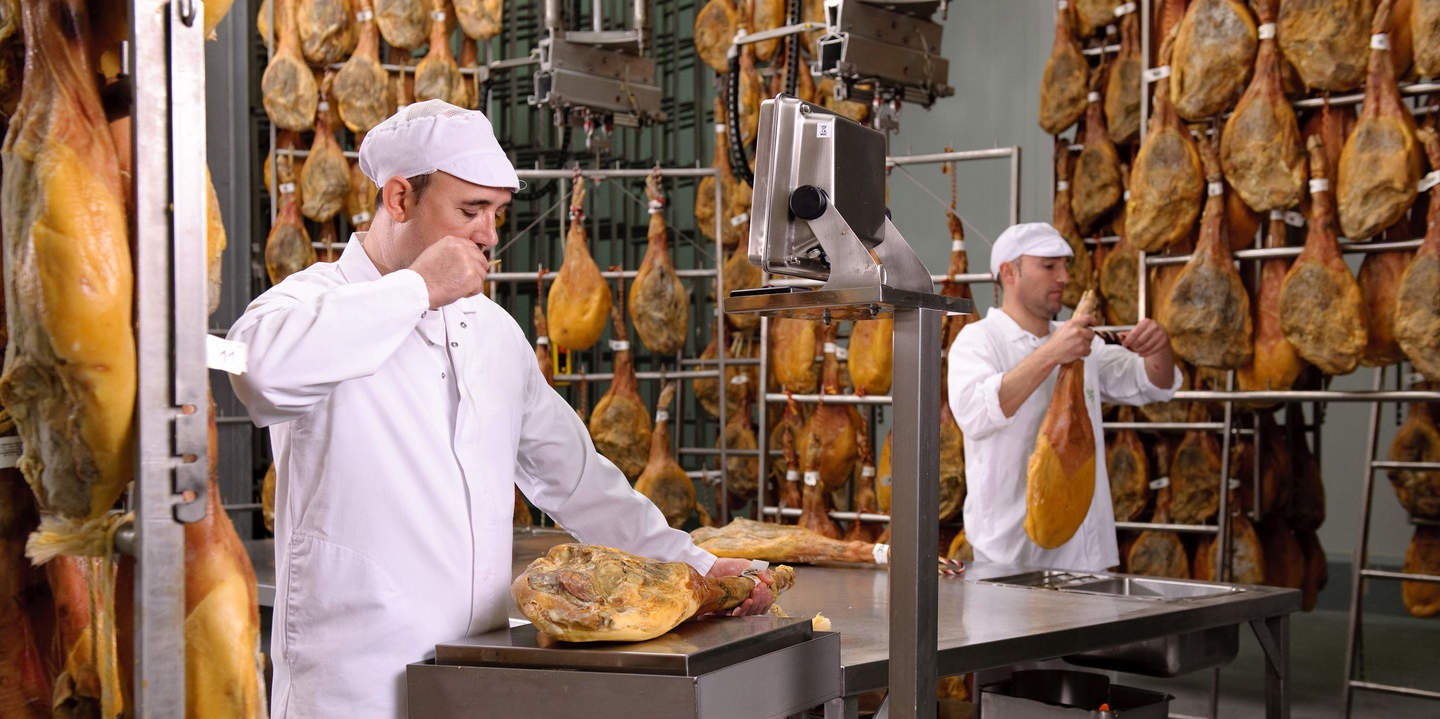The «ham sniffers» always follow their noses
The work of the «ham sniffers» at Bell España is an essential aspect of assuring the quality of the ham. Each individual piece is inspected, logged and categorised. In addition to years of experience and a lot of knowledge, this work requires one thing in particular: a highly sensitive nose.
Serrano ham takes at least eleven months to mature before attaining its typical, mildly nutty taste and wonderfully mellow texture.
The time a ham needs to mature depends mainly on its size, the quality of the meat and the climate. The duration of the maturation period can differ from ham to ham. Each ham therefore needs to be checked individually. Two things are of especial importance for this work alongside years of experience, a wealth of knowledge and expertise: a good nose and an exceptional sense of smell.
Four employees inspect between 1,500 and 2,000 hams every day at the Bell España plant in the Spanish town of Casarrubios del Monte. They are known as «ham sniffers» – or «caladores» in Spanish – because their work consists of inspecting the hams with the help of their senses to determine the degree of maturity. They then reach a decision on the next processing steps for each individual ham.

Various properties reveal the quality of a mature cured ham. The external layer of fat and the surface colour indicate whether the meat is fully dried and mature. The most important indicator, however, is the smell from inside the ham. The Caladores use a so-called «cala» (a «punch» in English) to check it. This tool is similar to an awl and is made from an odourless material. Certain kinds of exotic woods are especially suitable, as are cattle bones. The Cala is pushed into the ham at the level of the joint bone. The smell that adheres to the Cala tells the Caladores how far the meat has matured.

Fully matured hams that are sold as whole units are graded by weight and prepared for packaging. Hams that are too large or have external blemishes are sold over the counter or, following the removal of the bone, are sliced and packaged as portions. Hams that are not fully mature are returned to the maturing process.
Each ham is logged electronically together with the information about its degree of maturity and further processing. These are decisive elements to ensure traceability once the hams have left Bell España.
«The work of the Caladores is not only an important contributing factor towards quality», explains Rodrigo Fernandez, Marketing Manager at Bell España, «it also provides information about the performance of the producers from whom we procure the matured hams.» This is why the Caladores carry out their quality control inspections not only at the main site, but also at the producers’ premises.

The work of the Caladores is therefore essential to ensure customers get exactly the quality they expect of a product such as premium Jamón Serrano. It is precisely this key role, the responsibility that goes with it and the uniqueness of the work that accounts for the passion the Caladores have for their job. They see it as an opportunity to contribute towards the good name of the hams produced by Bell España and to put their knowledge, experience and expertise to good use for the benefit of the company and its customers.

